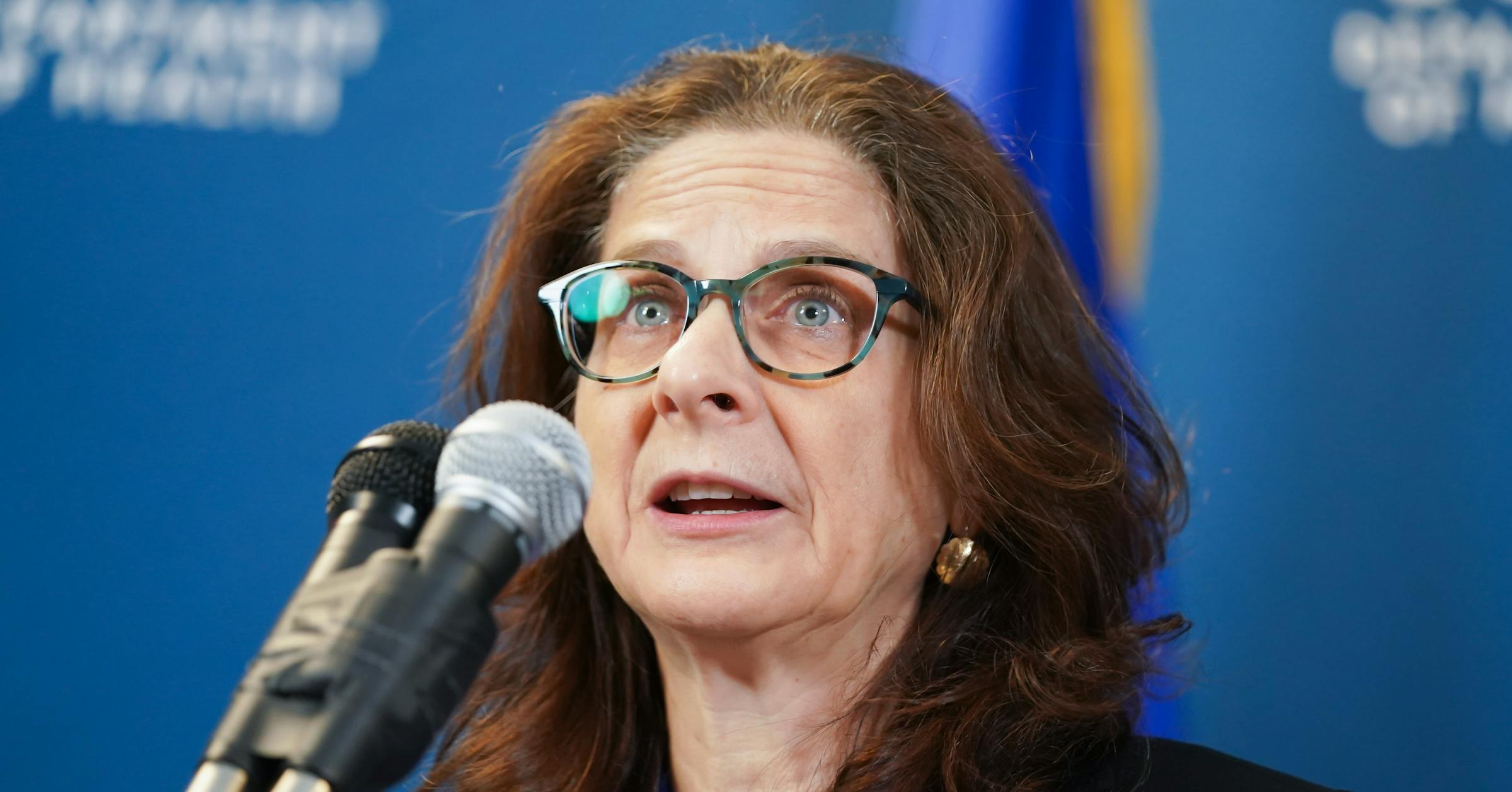
The state Department of Health announced the order and that it was aligning with national medical organizations in encouraging broader use of the vaccines.
“Vaccines are one of the greatest public health achievements in modern medicine,” State Epidemiologist Dr. Ruth Lynfield said, adding that people should consider the protection they offer against influenza, COVID and the virus RSV at the start of respiratory disease season.
Monday’s actions in state vaccine policy represent an unprecedented break from federal recommendations. Historically, Minnesota has parroted guidance from the Food and Drug Administration and the Centers for Disease Control and Prevention. That changed after President Donald Trump appointed a high-profile vaccine skeptic, Robert F. Kennedy Jr., as his health secretary.
Kennedy in turn appointed skeptics to the CDC’s Advisory Committee on Immunization Practices (ACIP), which decided last week against recommending the COVID-19 vaccine to anyone and instead encouraged people to make their own medical decisions.
Kennedy has raised concerns about complications from multiple vaccines and whether the risks to individual health outweigh the benefits. However, the American societies representing pediatricians, family doctors, and obstetricians have all recommended unrestricted access to the latest COVID-19 shots for people six months and older.
The state on Monday agreed with those recommendations. AHIP, the trade group for the nation’s health plans, also recently announced it was advising its members to maintain insurance coverage for the shots.
Until now, pharmacists in Minnesota could only give the latest COVID-19 vaccines without prescriptions to people who met FDA approval criteria — namely, those 65 and older and anyone with underlying health conditions.
Lynfield’s standing order acts as a blanket prescription for Minnesota, allowing pharmacists to give the shots to anyone 12 and older seeking protection from COVID-19, which has persisted even after the end of the pandemic two years ago.
Her order highlights the need for shots among people who have never been vaccinated, residents of long-term care facilities, and people living with others at elevated risk of complications if they get COVID-19. A second order also allows pharmacists to give pediatric versions of COVID-19 vaccine to children age 3 to 11 if their parents want them to have protection.
Lynfield said it was unusual to issue guidance that deviated from federal policy, but “we wanted to make it easy for Minnesotans to go to a pharmacy” for their vaccines. Recent data showed that about 46% of COVID-19 vaccinations in Minnesota are administered at pharmacies.
Public interest in the vaccine has waned since the pandemic. At the end of the last respiratory disease season in May, only 22% of Minnesotans were fully vaccinated against COVID-19 compared to 34% who were protected against influenza.
COVID-19 is nowhere near the lethal threat it was during the pandemic, when it was causing more than 70 deaths of Minnesotans per day at its worst. But this year, the state has has tallied more than 3,500 hospitalizations and 320 deaths from the now-endemic infectious disease.
Monday’s actions came at the prompting of an executive order by Gov. Tim Walz, who said he was concerned that federal health authorities were ignoring scientific research.
Complications from COVID-19 vaccinations are considered rare, but they do happen. Some Minnesotans reported disabling conditions after vaccinations that they sought amid the pandemic. The Mayo Clinic’s Dr. Gregory Poland, a widely known vaccine advocate, reported ear-ringing known as tinnitus after his shot.
A University of Minnesota-led research group conducted an exhaustive review this summer of the latest vaccine safety data and verified rare and mostly mild cases of myocarditis (or a swelling of the heart muscle) among vaccine recipients. One study included in the analysis found up to three cases per 100,000 recipients, mostly males, in those who received the Pfizer version of the COVID-19 vaccine.
In that analysis, COVID-19 vaccines still presented far greater benefits than risks for individuals, protecting them against severe or disabling levels of COVID-19. Michael Osterholm, director of the U’s Center for Infectious Disease Research and Policy, was critical of federal advisers last week for overlooking these clear scientific findings.
“Sadly,” he said, “the ACIP we knew has been hijacked and is today an ideological body and no longer a scientific one.”



